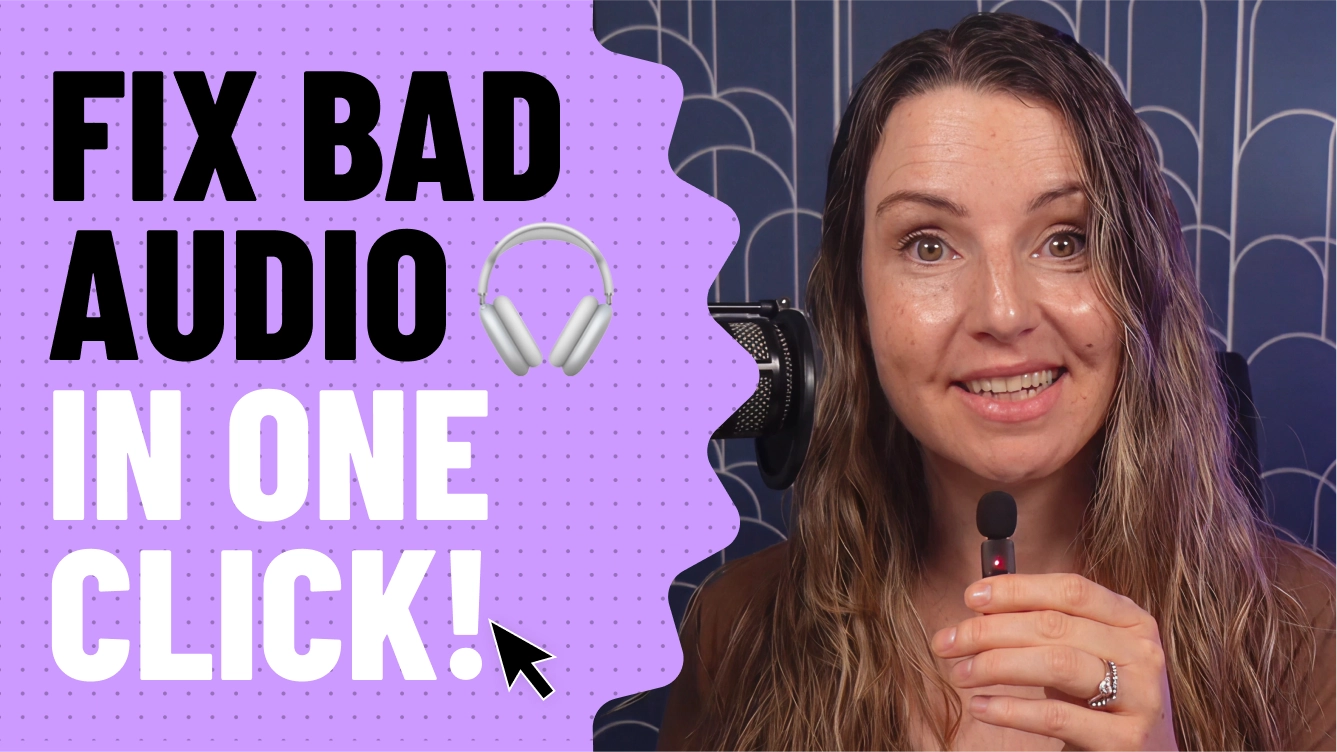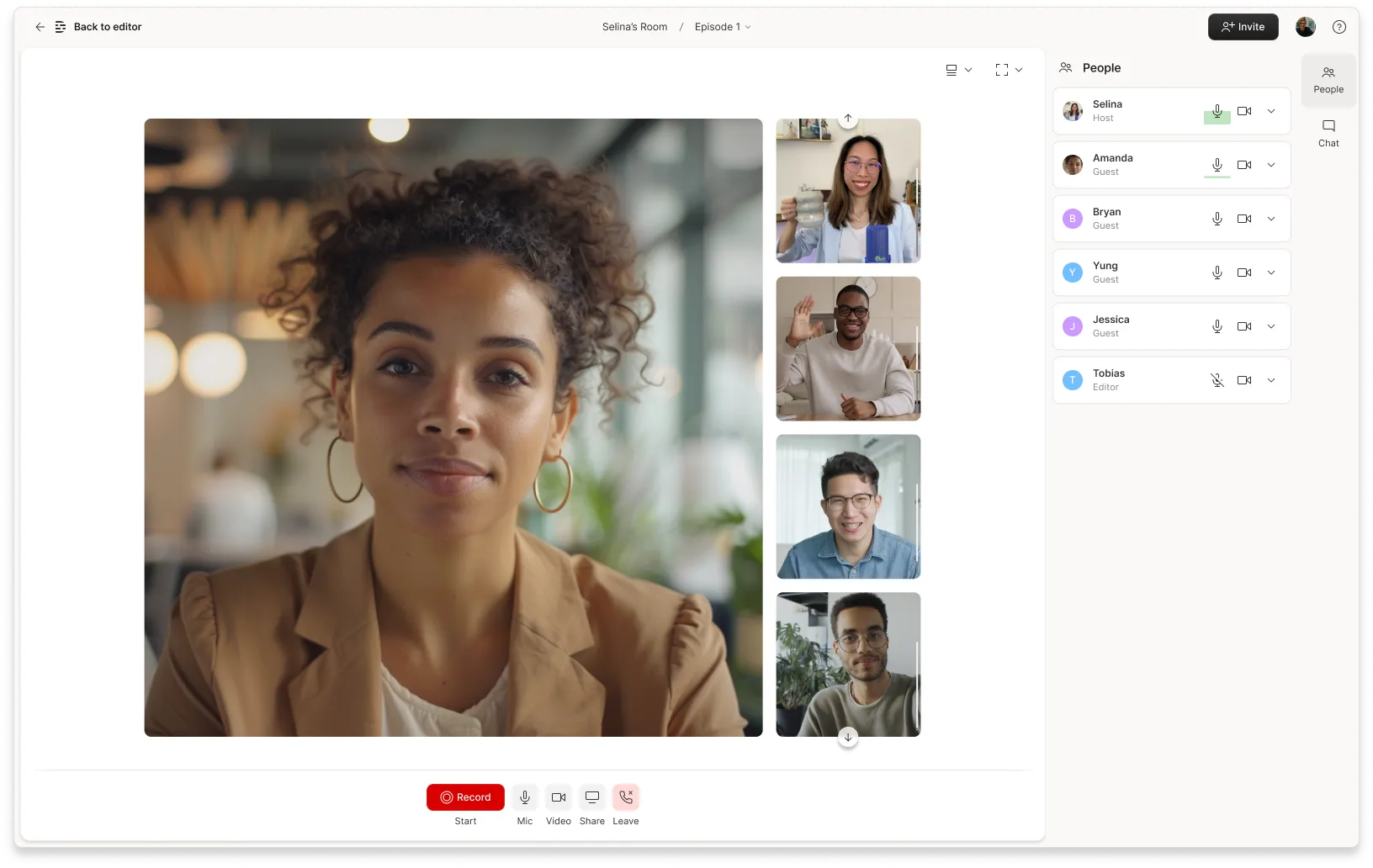The key to making a weekly podcast is to keep episode ideas fresh. And nothing shakes up an episode format like a game! No matter the genre—interview show, political gabfest, pop culture roundtable, and beyond—a little bit of work on the game master’s part will pay off big.
In this article, you’ll learn why you should add a game show segment to your podcast, how to do it well, and a few ideas to get you started.
Why play a game?
“I don’t want to play a game on my show,” you might be saying. “We talk about important issues and we don’t have time to spend on frivolous games.” In fact, you do and you should.
This is an opportunity for your audience to see the hosts do something new and out of the ordinary. When you take a break from regularly scheduled programming, the audience’s ears will perk up, and they’ll ultimately feel comforted by the show’s structure when you return to normal next week. Not only that, we can’t underestimate the parasocial bond between audience and hosts. They likely want to see the human side of the folks who usually stay on topic.
It doesn’t even have to be a full episode of games! A ten-minute game segment can reinforce points and dive deeper into specifics, as well as shake up the lecture or conversation.

Take the chance to get elaborate
Since you’re doing something different during this episode or segment, you can put your planning brain to work here. This is your opportunity to kick it up a notch and show the audience you’re a good time. Put a ten-dollar Dunkin Donuts gift card or a round of drinks on the line to get the players invested. Send whiteboards to your players’ houses so they can talk about this “mysterious package that showed up the other day.” Make an elaborate PowerPoint to share on socials later.
This isn’t about winning; it’s about having fun
You think you might know your cohosts (or yourself), but you might not. Someone might have a hidden competitive streak that bursts forth as soon as points are on the table. Sure, some audiences love the tension that comes from hosts being at each other’s throats, but is the friction between collaborators worth it? I don’t think so.
At the same time, having a player not participate is deeply frustrating. If they just give joke answers at trivia or are saying $10,000 for every round of The Price is Right, that communicates to the audience that it’s ok not to care about what they’re doing.

Did I just say you have to be competitive but not too competitive? Yes. It’s a balance, but the gamesmanship taps into our ability to do silly things together. All of this can be solved by communicating with one another. Before you start, off the mic, remind everyone that you’re on stage and you’re here to have fun, for each other and the audience.
And you won’t know how everyone will react unless you do it. So play the game, listen to the episode recording, and if the vibes are off, don’t run it.
Keep everyone involved
It isn’t just the players who are responsible for keeping the enthusiasm up. The person who is creating and running the game needs to do that too. Unlike your local bar trivia host, this isn’t an opportunity for the Game Master to make their people look dumb on the mic. Here are some ways to keep everyone in the game:
- Price Is Right Rules: As Bob Barker and Drew Carey always said, it’s about who is closest without going over. Bring that rule to any game to reward someone getting close to the answer; no one wants to hear “no points!” five rounds in a row.
- Teamwork makes the dream work: Playing in teams adds the spirit of cooperation and cuts down on weaknesses that lead to dead air. If you don’t have enough people for teams, maybe make the players unite against the Game Master.
- Bonus points: Everyone loves extra rewards, even if they’re fake points for your podcast game. Don’t give out bonus points willy-nilly so the game doesn’t matter, but do give out enough to actually reward someone for being extra quick, funny, or helpful.
- Let someone shine: As we said before, this game is a good excuse to let your audience get to know everyone better. So if someone has a deep well of knowledge in an obscure topic, let them shine and challenge them to trivia about their niche topic!
Game ideas
Ready to play but need help figuring out what to do? Here are some ideas to get you started:
- Trivia: What’s simpler than asking obscure questions? But to make this enticing for your audience and relevant to your show, you might want to look into a spin on the classic trivia method. One way is not to ask for objective answers and truths but to ask what a strange resource or biased person might say. A good example: on popular B-list celebrity podcast Who? Weekly, they play the Famous Birthdays game, where the player needs to figure out who the birthday website FamousBirthdays.com thinks is more famous.

- This or That: Silly, ridiculous, and multiple-choice, the This or That game is a simple way to get competition pumping. This is a great opportunity to shine a light on a hot topic’s specifics, like naming conventions or someone’s speaking patterns. If you need examples, check out Pokemon Name or Cholesterol Medication or Who Said This: Taylor Swift or Shakespeare
- Rip Off a Game Show: Let the TV shows you watched home sick as a kid be your guide. Crib the rules from Jeopardy, the Price Is Right, the Newlywed Game, or Family Feud and apply them to your podcast topic.
- Fantasy Draft: While not a game per se, this is a competitive spin on any Best to Worst ranking segment. If you avoided the fantasy football craze of the last 2010s, a fantasy draft is when participants take turns picking members of a specific group of things or people, drafting them to be on their team. Once that thing or person is drafted, it can’t be selected anymore. So instead of everyone saying their favorite 90s action movie or best vegetable, they have to put their money where their mouth is and draft them to their team (and deal with the comments of their fellow contestants).








































